news
News in Israel
Criminal news and law
From a neglected yeshiva to an explosive hotspot: the steep road of Berland and the Shuvu Banim yeshiva
Rabbi Berland, the suspect in the offenses of extortion and fraud who was previously convicted of indecent acts, grew up as a charismatic leader of a small yeshiva of converts in Bnei Brak.
When he moved to the Old City in Jerusalem, violent frictions ignited the area.
Between Teddy Kollek's warnings and Gandhi's support, 'Return of the Boys' has attracted more and more attention.
Tags
Eliezer Berland
Eli Ashkenazi
Saturday, 15 February 2020, 09:41
Share on Facebook
Share on WhatsApp
Share on general
Share on general
Share on Twitter
Share on Email
0 comments
Demonstration in Umm al-Fahm, October 22, 2021
Meeting of Foreign Ministers of Israel, the United States and the United Arab Emirates ...
Protection in the north: Three residents of Avtin were accused of arson ...
Finance Minister Avigdor Lieberman in an interview with Tal ...
President of China: "We will peacefully reunite with ...
A 20-year-old man was arrested on suspicion of murdering his mother at her home in Beit Shemesh ...
Arrest of "Mossad agents" in Turkey, from TV ...
Documentation of the activities of the multidimensional unit during Operation ...
Putin: "There are problematic issues to discuss";
Bennett: "We'll talk ...
Chest experiment on Tinder
Facts about coffee
A passenger brought a microphone to the flight and began to preach to the passengers:
In the video: Extending Eliezer Berland's detention (Photo: Paul, Editing: Amit Simcha)
In October 1979, the Jerusalem Khan Theater staged a new play.
The spectators were given a different hall than usual: the chairs were taken out and the crowd entered a kind of dark cave lit by candles.
The setting gave the hall the appearance of a shabby, meager funeral home with a covered body and seven mutilated beggars who found shelter.
The play "Seven Beggars" directed by Yossi Yizraeli was based on the story of Rabbi Nachman of Breslav, which contains spiritual and philosophical meanings.
The play received mixed reviews, but one group of people who did not watch the play expressed their displeasure with it even before it even took the stage.
An image of a naked man was displayed on the display of the play, which angered Breslav's followers who saw themselves as guardians of the rabbi's legacy.
A group of them came to the theater and caused damage to the building.
More on Walla!
"Fear of escaping from the terror": Rabbi Berland's detention was extended by eight days
Arrest of Rabbi Berland: "Those involved served as a money launderer"
Investigation of the Berland affair: candy instead of medicine and 200 testimonies from patients
Do you deserve a disabled parking ticket?
That's how you get it without bureaucracy
The charismatic rabbi swept many after him.
Berland at a hearing to extend his detention, this week (Photo: Official website, Jonathan Zindel, Flash 90)
The deputy mayor of Jerusalem on behalf of the NRP wanted to reconcile and held a meeting between the theater director and the person who was defined as a "representative of Breslav's followers." It was Rabbi Eliezer "Laser" Berland. , He requested that the ad be preserved and promised to publish an apology for the damage
done.Burland, who this week was arrested by police forces following an investigation on suspicion of extortion and fraud and previously convicted of indecent acts, began at that time to become a significant figure in the penitentiary world.
Maariv reporter on the riots following the murder of Eli Amidi, November 17, 1986 (Photo: screenshot, Maariv)
In the 1970s, the conversion movement in Israel began to gain momentum.
The trauma of the Yom Kippur War, the poverty and feelings of deprivation in the distressed neighborhoods and development towns, the search for a way for the graduates of the flower children generation - all of these led many to look for their way, ask questions and find the answer in religion.
Berland was then after a search of his own.
After growing up and being educated in the Lithuanian current, he found himself attracted to the world of storks.
It was the teachings of Rebbe Nachman of Breslav that captured his heart and he approached the heads of the Hasidim.
He moved to Bnei Brak, where Rabbi Levi Yitzchak Bender founded the Breslav Yeshiva in 1960, a yeshiva that then numbered only 30 students.
More on Walla!
Sexual offenses, escape from the land and the violence of the Hasidim: the scandals of Rabbi Berland
To the full article
In the early 1970s, young Berland began working among converts. Dedi Ben Ami, a veteran of military bands and a grandson of the founders of Nahalal, was one of his first students. In 1978, when he was only 31 years old, Berland was appointed head of the "Shuvu Banim" yeshiva, most of whose students would repent. The yeshiva operated in a small, neglected house in the Neve Ahiezer neighborhood of Bnei Brak. Maariv reporter Avi Bettelheim visited the yeshiva and described the place: "Old and dilapidated equipment. On the bookcase is a tattered baby stroller, which there is no other place to put. The memorial candle is placed in a large glass of beer. The walls are peeling and begging except for paint."
But Bettelheim dealt in the article mainly with the human composition of the yeshiva students. These were young people who grew up in troubled neighborhoods, many of whom had degenerated into the world of crime. For the first time in their lives they were given proper treatment, to sit and study and feel belonging. For the first time in their lives someone also found something good in them and they started to find some peace of mind. The name of the yeshiva fit well with the verse from the book of Jeremiah from which it is taken: "Naughty boys have returned from your return. "
The body against the soul
Berland opened two more meetings - in the Hatikva neighborhood and in the "Shaviv" neighborhood in Herzliya. Yaakov Holzberg, 25, from Herzliya, told of his journey at the time: "The temptation was very great for a poor and destitute child and I was seduced. At first I would steal protective toys from villas in Herzliya Pituach. At school, I stole plums and other fruits and at the age of 16 I started smoking cannabis and opium. After I enlisted I was put in a carriage. "The drivers would go to Abu Rhodes (in Sinai, AA), when it was still in our hands, throwing to the Bedouin on the way some loaves of bread and a few pieces of pastrami, and in return we got cannabis loaves from them. We had cannabis like watermelons in the summer." He and other interviewees told about their deteriorating journeys, from which they were rescued only after reachingBoys are back. "
The picture that is prevalent today in court hearings only then began to be seen in the courtrooms: suspects and defendants would appear for hearings with a skullcap on their heads, sometimes their own eyes and mumbling sacred words in front of the judge.
"The phenomenon of repentance," District Judge Haim Steinberg said at a 1980 court hearing.
"There is a true answer in it and it is worth congratulating it, but a distinction must be made between a return in a true answer and external signs of a return in repentance, behind which there is no real mental maturity."
A Lithuanian who was attracted to the world of storks.
Berland in the Jerusalem District Court, August 2016 (Photo: TPS Observation, Hillel Meir)
Not only people from the margins of society came to the yeshiva of the young and charismatic rabbi.
A special connection was created there: also veterans of elite units, pilots and a famous chess player found an answer.
Berland began to arouse interest.
Journalist Sarit Fox, who interviewed him, described him as a "radiant follower."
He spoke to her about "the Breslav way to reach devotion, a way that if one does not know how to walk presently it becomes disastrous for the leader and those around him."
The interview touched on the human spirit and psyche and Berland added: "A person is constantly persecuted in real anguish or psychological anguish. The physicality of the body causes the soul seeking spirituality incessant anguish. "He is persecuted, but by his body. The body strives against the soul."
"Ongoing Nightmare" in the Old City
In 1982, Berland decided to move the yeshiva from the distressed neighborhoods of Gush Dan to the heart of the political-political crisis. The yeshiva began operating in a building in Ma'ale Khaladia in the Muslim Quarter of the Old City of Jerusalem. It was a building that operated from the end of the 19th century until the 1930s as a yeshiva of "world life". With the conquest of the Old City by the Jordanians and even after the Six Day War, the place stood abandoned, until Berland and its students came to it.
The place belonged to a body called "Atara LeYoshana", but the Breslavs invaded the place. At the height of the clashes, the director of Atara LeYushna, Israel Feuchtwanger, closed the iron gate and fired his pistol into the air. Finally, Atara Lioshana apologized and rented the building to Shuvu Banim, when a wealthy Jew from the dairy community in the United States financially supported them. State institutions will also budget for the meeting. Thus, for example, in 1985, the Minister of Labor and Social Affairs, Menachem Porush of Agudat Israel, transferred NIS 5.5 million (old) to Shuvu Banim.
Mayor Teddy Kollek objected to the yeshiva’s location in the heart of the Muslim Quarter. He feared the explosive friction between the yeshiva students and the Arab neighbors. But the yeshiva was set up and his fears matched: 11 Muslim families living in the compound agreed to evacuate, but four families remained whose lives became an "ongoing nightmare," as researcher and journalist Nadav Shragai described in his book "The Quarrel Mountain - The Struggle for the Temple Mount: Jews and Muslims, Religion and Politics" Since 1967 ".
"The yeshiva students harassed them, cursed them and threw stones at their homes," Shragai wrote.
"The asceticism of the boys and the poor sanitary conditions in which they lived helped greatly embitter the lives of the neighbors, and for many months human secretions leaked from the yeshiva's sewer system into the neighbors' apartments. Abu Miyala died of her wounds after being beaten, AA) and Nafaz Abu-Meiser Mahmoud Abu-Saina and his family were forced to abandon their apartment in the yard at one point, after the students stoned them to death. It was broken into, a lot of property was vandalized and the door of the house was sealed with blocks. "
Teddy Kollek's concerns about the ongoing friction and his adjustment.
The Old City of Jerusalem (Photo: Noam Moskowitz)
Kollek asked to remove the yeshiva from there and move it to a more remote place, but the police and the IDF opposed his requests. Security in the district.
But security was not achieved. On November 15, 1986, Eli Amidi, 21, a 21-year-old resident of the Shmuel Hanavi neighborhood in Jerusalem, was murdered near the yeshiva. He had moved to the yeshiva building two weeks earlier. From his home to the yeshiva building in the Old City of Jerusalem, a few meters from the yeshiva entrance, three terrorists attacked him and began stabbing him in all parts of his body.
The shocking murder led to a severe and violent outburst of rage in the Old City. During the funeral procession, which left early in the morning for the Mount of Olives, "the marchers laid the dead on the road and began to vent their anger in private homes, Arab cars and a gas station near the Rockefeller Museum," described Tanza Yosef Yehudai, commander of the Jerusalem police. Whatever happens, for a moment I felt helpless. I had a problem whether to hurt the mourners and stop the funeral procession or allow the journey to continue during riots. I did not want in any way to violate the dignity of the dead, but at some point had a senior officer to shoot in the air to stop the frenzy mob threatened to raise gas station on fire. "
Rioting continued even after the funeral, and dozens of people severely beat a passerby evenings. Next meeting of returning sons were torched sewing workshop and warehouse Many shops were damaged, so 15 cars, a number of tractors and a tanker of the Jerusalem municipality were set on fire.
"Commanded to avenge his blood." The news of the rabbi's reading in 1986 (Photo: screenshot, Maariv)
The tension lasted all week after the murder. Police intensified forces ahead of the inauguration, and Rabbi Berland called for revenge: "The blood that is burning among us now is not blood that has calmed down. This blood cannot be covered. A grenade at the garbage gate, knives inside the walls. The heretic.
Amidi's brother begged for restraint and called for no violence, but things got out of hand and after the memorial service close to a thousand people began marching to the Old City, shouting "Death to the Arabs", "Arab Teddy" and "left-wing media". On the way, stones were thrown at cars and a number of passers-by were beaten. Only at nine in the morning did the police manage to contain the riots.
In the same week, Anwar Nusseibeh, a senior member of the Palestinian leadership, passed away.
The crowds that accompanied the burial procession on the Temple Mount shouted along the way: "Kahana, pick up your dogs and walk away."
The pressure cooker was about to explode.
The head of the Supreme Muslim Council was about to appeal to the international community that an international police force be stationed in the Old City.
In those days, members of the Amidi family who arrived at the scene of the murder were attacked and the victim's mother was burned by boiling oil in which a memorial candle was burning.
"The body strives against the soul."
Berland is brought to a hearing on the extension of his detention, this week (Photo: official website, Yonatan Zindel / Flash 90)
Arab MKs who came to the Old City sought to cool the winds and met with Berland.
The rabbi convened his students and then sent a conciliatory message to the Arab families who had fled his yeshiva area.
"We are brothers and should live together, from today you will not be harmed," he told them.
A representative of the families who fled said they still did not feel safe.
On the thirtieth day of Amidi's murder, Berland again called for blood revenge.
"Return of the Boys" has become the focus of interest and has attracted a great deal of attention, especially fears that a flare will emerge from there that will ignite a large fire that will spread.
Central Command General Ehud Barak also arrived at the scene together with a Jewish superintendent.
At the meeting, "he was surprised to meet some of his informants from the unit's military service (General Staff Reconnaissance, AA)," wrote Amnon Abramovich, then a columnist for Maariv, who accompanied the visit.
Maariv on the police force that secured the Arabs in the Old City, November 16, 1986 (Photo: screenshot, Maariv)
Abramovich spoke with several students at the place, including C., who was a member of the Nahal nucleus at the former communist Kibbutz Yad Hana. "Between the demand for restraint and the demand for revenge," Ambremovich wrote.
Share on Facebook
Share on WhatsApp
Share on general
Share on general
Share on Twitter
Share on Email
0 comments

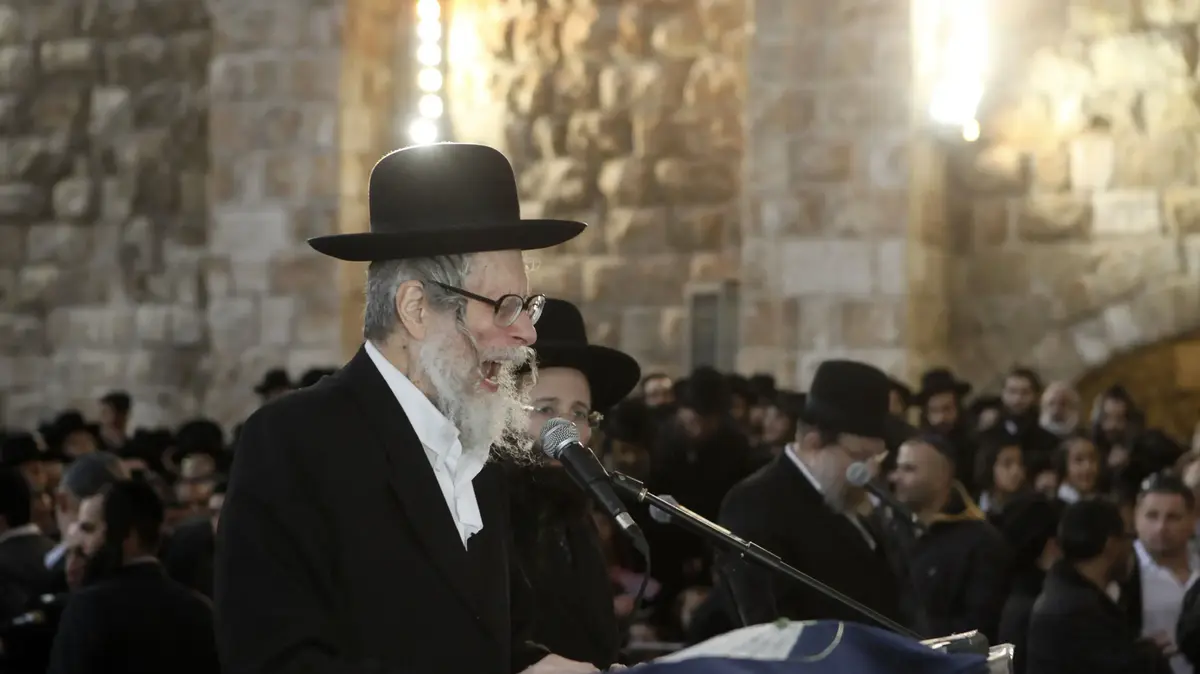
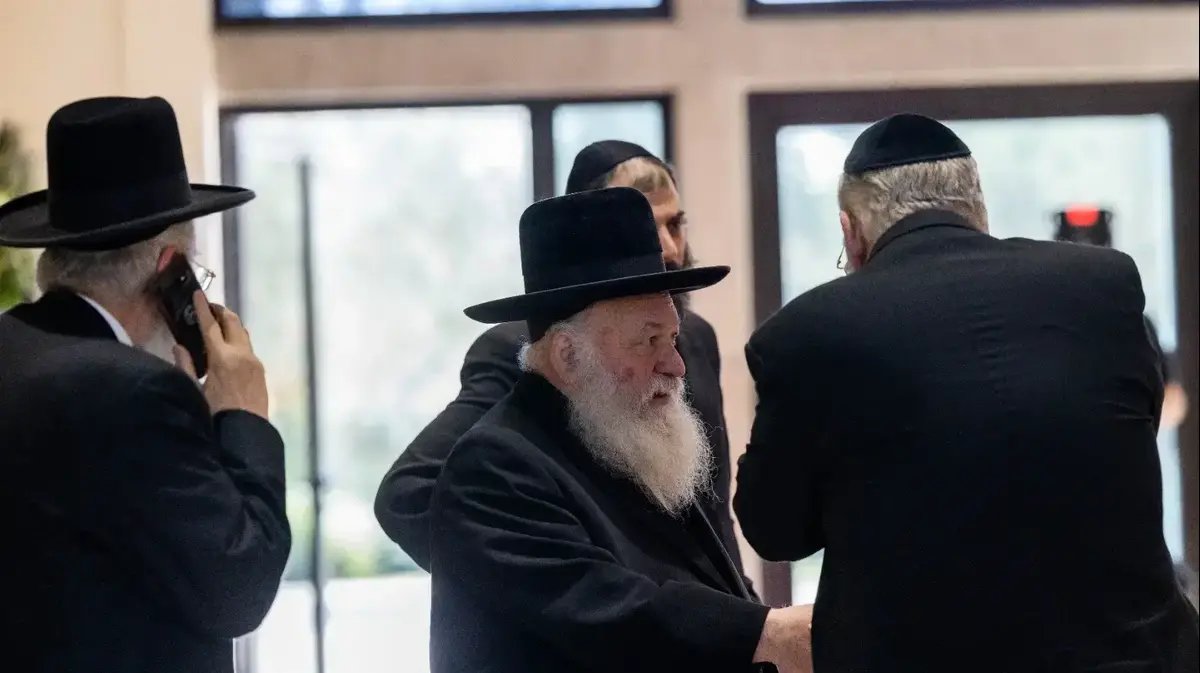
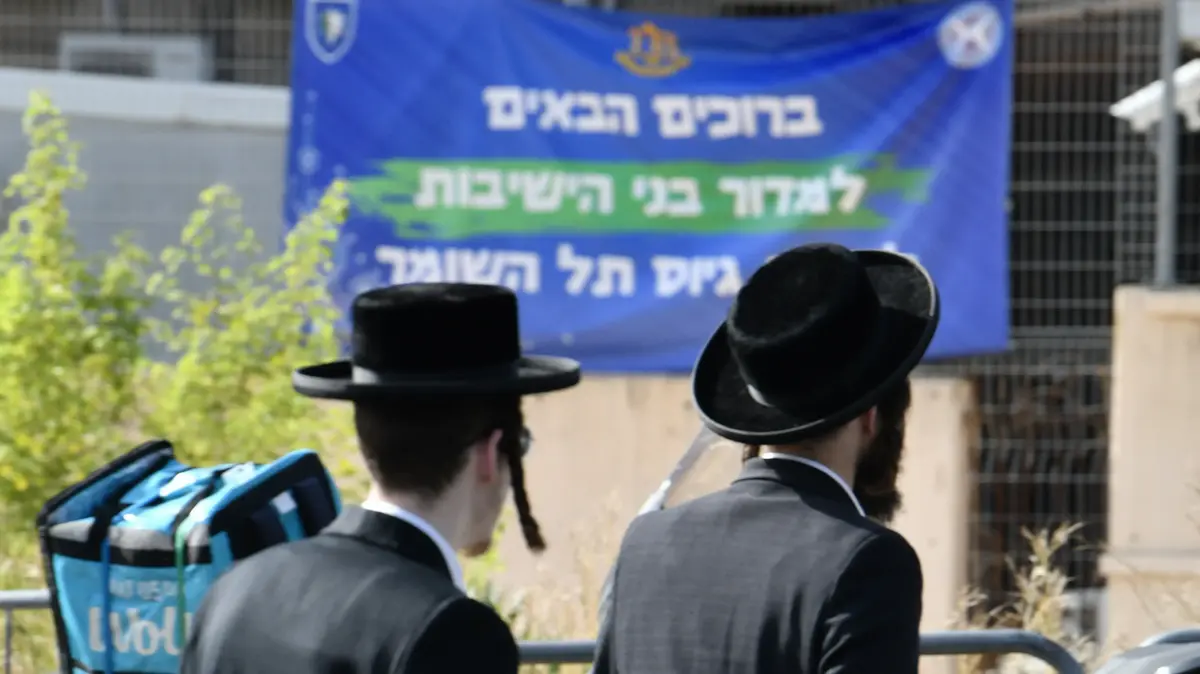
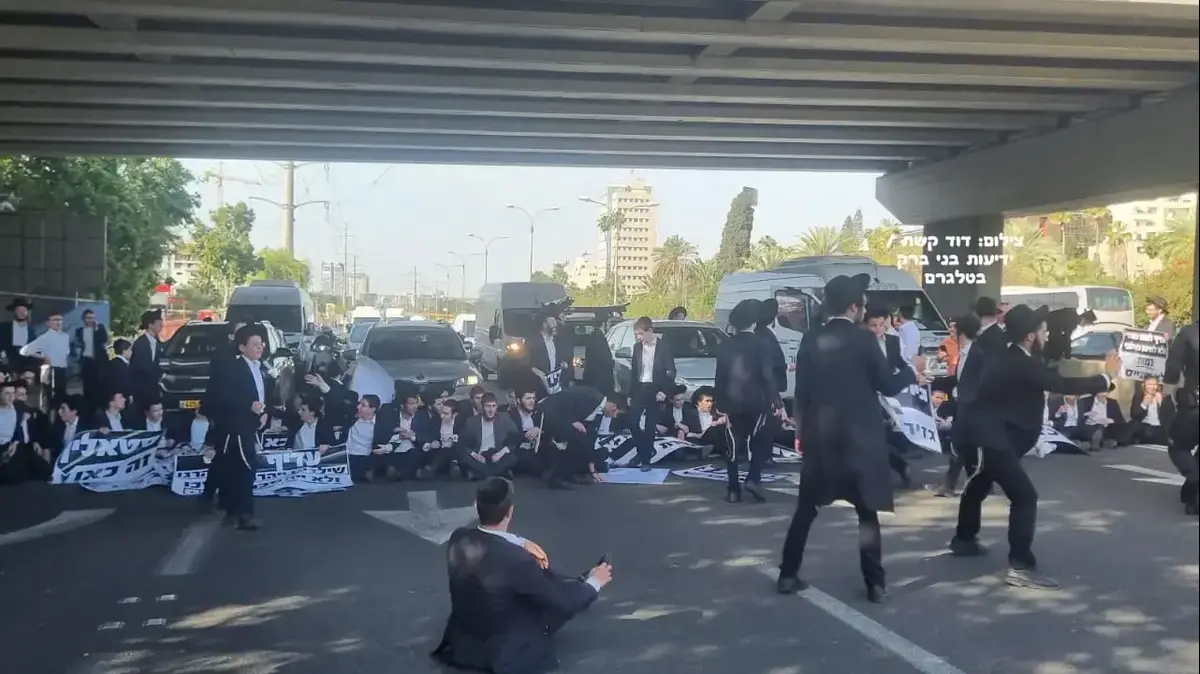
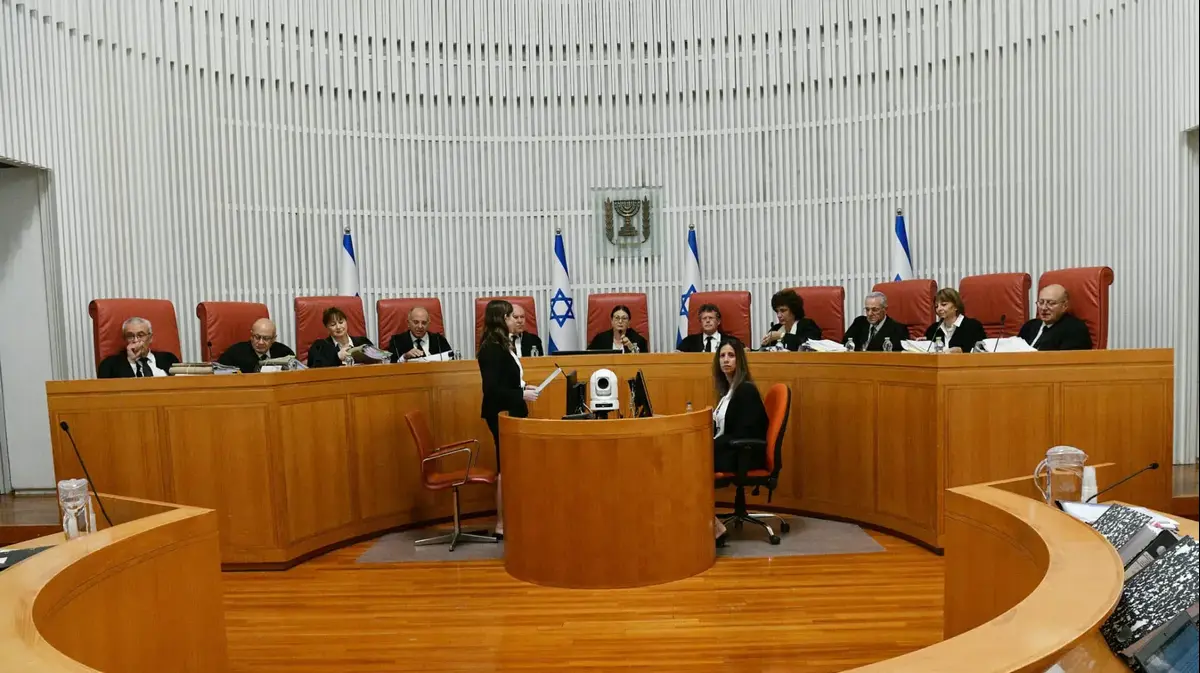
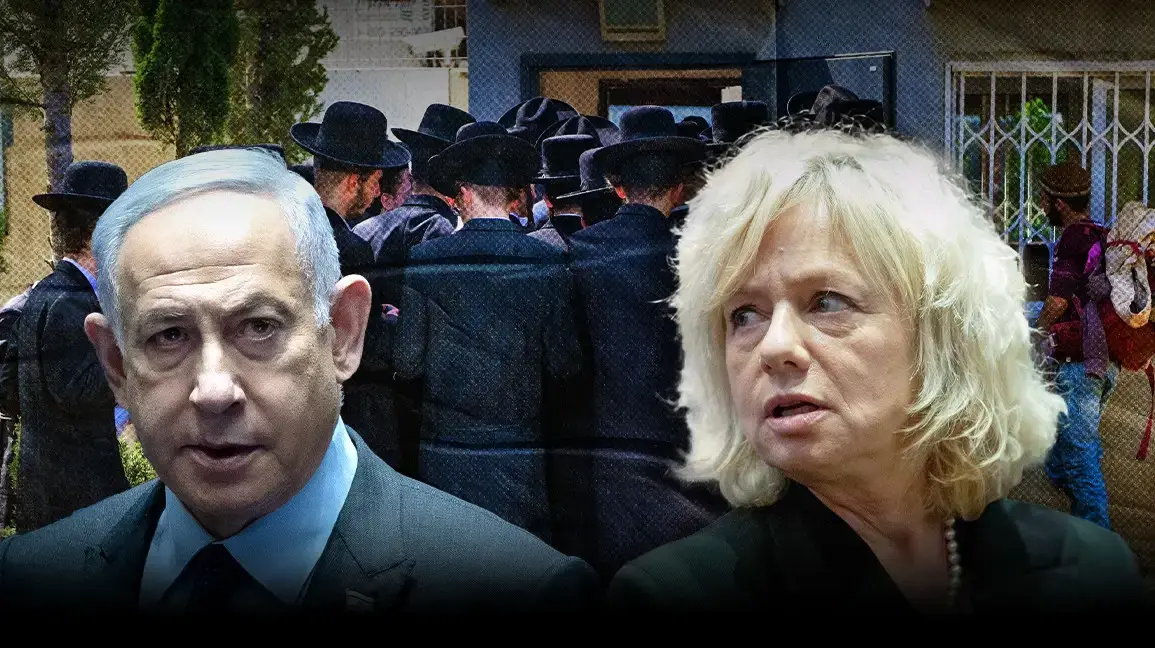
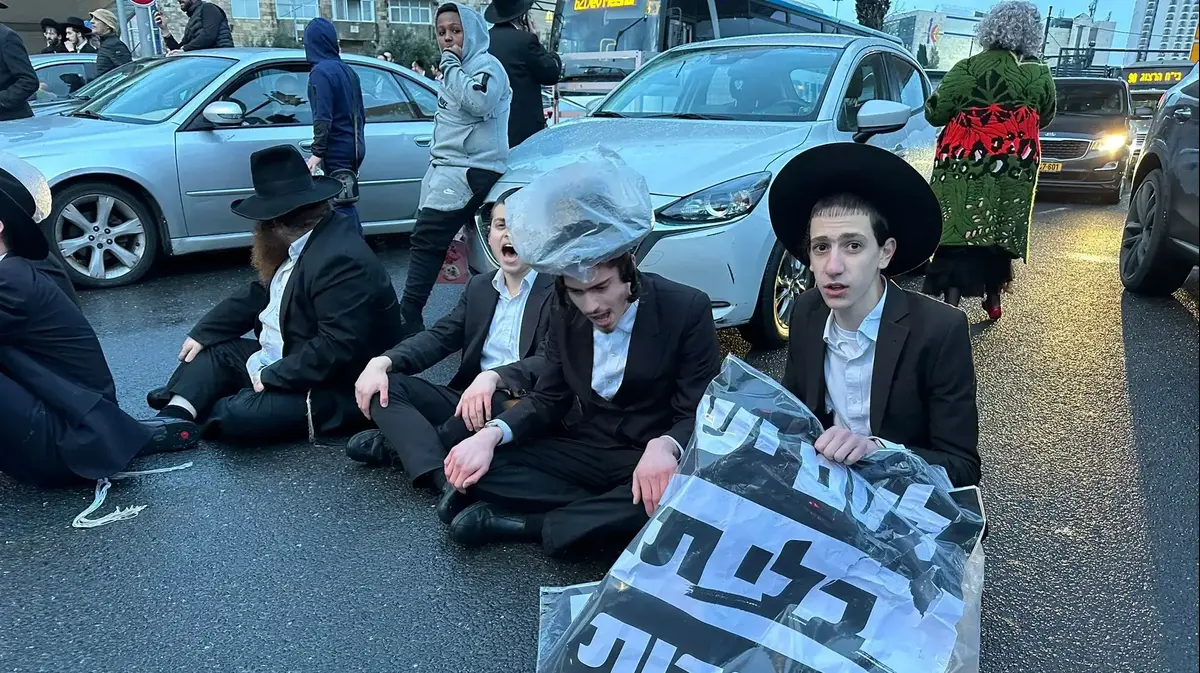
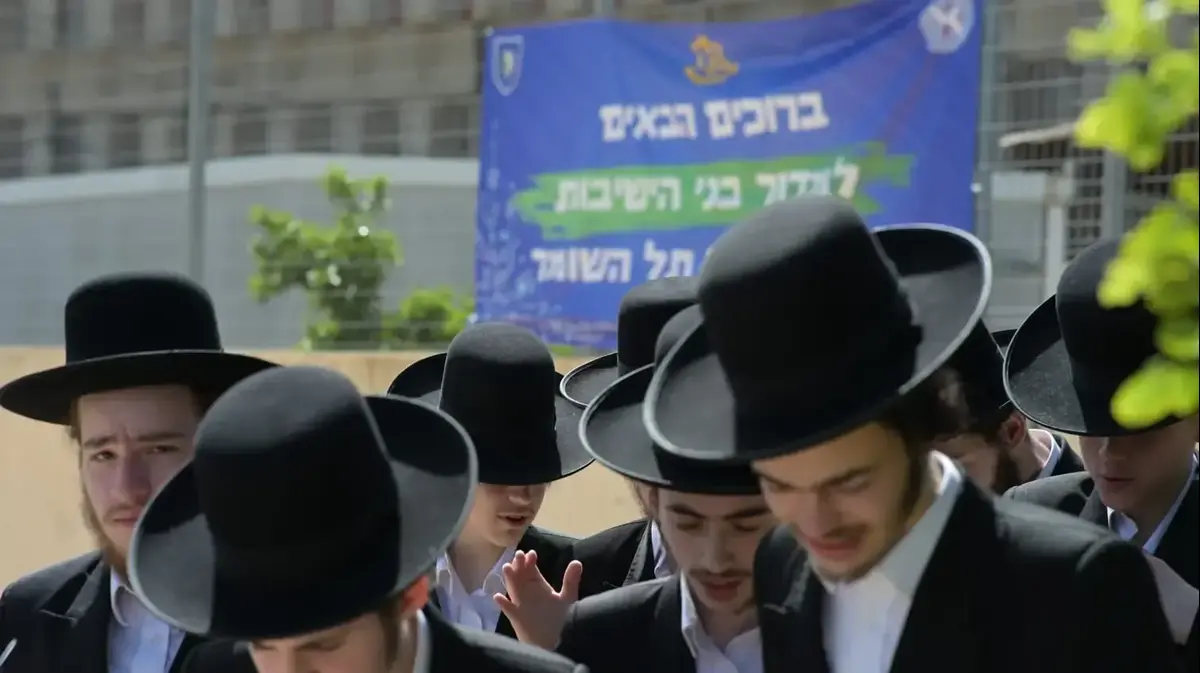

/cloudfront-eu-central-1.images.arcpublishing.com/prisa/KMEYMJKESBAZBE4MRBAM4TGHIQ.jpg)



